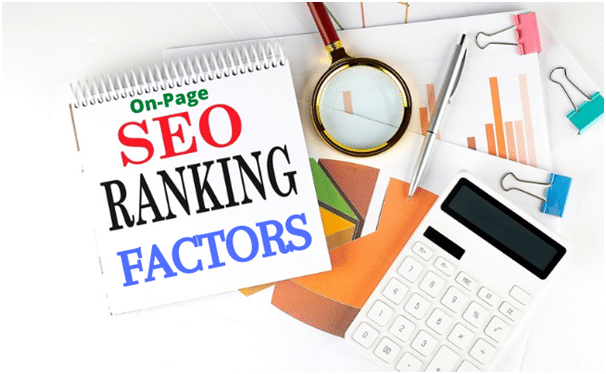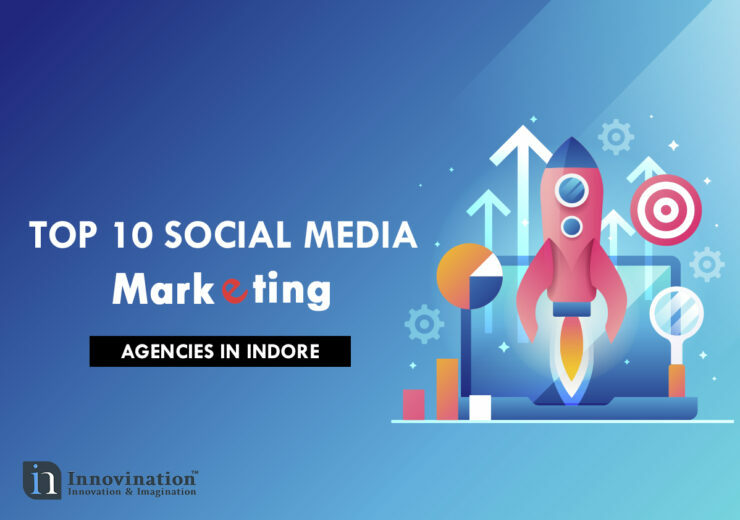9 Most Important On-Page SEO Ranking Factors to Consider in 2023
Updated at: September 30, 2024

Wondering what on-page SEO is? Or why it is important to consider on-page SEO factors and how you can keep a full eye on your SEO strategies to succeed.
Well, in today’s tech-savvy world, getting success in organic searches matters a lot. It requires the optimization of significant SEO factors, both on-page, and off-page.
These SEO factors are considered as the foundation of Google’s organic search algorithm.
Over the past few years, SEO experts have focused more on off-page SEO techniques such as NAP citations, brand mentions, and many other technical aspects.
You might be surprised by the fact that on-page SEO is equally important as off-page. Your off-page SEO strategies will all fail gradually when you overlook the basic on-page SEO fundamentals.
Being an SEO practitioner, you must know how important on-page SEO optimization is. It is important to analyse your overall website performance and display your website if the search engine finds any searcher’s query relevant.
On-page optimization must always be a top priority for skilled SEO specialists. Because the search landscape is rapidly developing each passing day, it’s critical to keep your on-page SEO skills up to trends.
In this article, you will go through what on-page SEO is, why it’s important, and 9 of the most critical on-page SEO factors today in 2022.
What is On-Page SEO?
In the SEO world, on-page SEO is also known as on-site SEO. It is the process of improving a site’s search engine rankings and generating website traffic from its individual web pages.
On-page SEO takes into account a variety of other factors such as optimizing your headings, HTML tags (description, Meta, and header), and graphics in order to publish high-quality content.
Maintaining high levels of competence, authority, and credibility of the website, the on-page SEO factors make the whole to-do list.
In addition to increasing your website’s exposure in search results, it takes specific keywords into consideration to gain organic traffic.
Why On-Page SEO is Important
A website’s on-page SEO is critical in determining whether or not a searcher’s query is relevant to your site and the material on your website.
Search engine results pages are becoming increasingly focused on relevancy and semantics as search engines have evolved more advanced over time (SERPs).
Your website and its content must be well-optimized in full compliance with the most recent best practices in order to respond to this new development. You can do this by guaranteeing that your website and its material (i.e., text, images, video, or audio) are well-optimized according to modern web strategies.
To cut a long story short, you can’t simply ignore on-page SEO since you have more control over on-site components than optimizing off-page elements (i.e., backlinks).
This article will take you step-by-step through the most important elements of an effective on-page optimization strategy.
9 Most Important On-Page SEO Ranking Factors
You can optimize your material and authority by focusing on these 9 areas, which will lead to an increase in rankings, visitors, and revenues.
1: E-A-T
Expertise, authoritativeness, and trustworthiness are principal factors among many others that google uses to rate content, webpages, or even the whole website.
Google always values excellent and unique content. It intends to promote high-quality content creators with higher ranks while low-quality or duplicate content creators are penalized without a hitch.
So, there is a definite link between high-quality content and search engine results and these essential EAT measures play a significant role in deciding the rank.
2: Title Tags
The title tag is also known as an HTML tag. It can be seen in each web page’s header and gives readers an idea of the page’s thematic focus.
The title tag is often neglected but it has the most impact on organic search rankings.
However, weak title tags can have a significant influence on your SEO rankings, so make sure you’re optimizing title tags carefully for all three elements: duplicates, missing, and poor wording.
3: Meta Descriptions
Meta descriptions are concise descriptions that tell few details about the page. Meta descriptions can be seen in the SERPS written under the SEO title of the web page.
Meta descriptions have been a critical on-page factor of search engine optimization since the beginning of SEO days.
Despite Google’s claim that Meta descriptions have no impact on search engine results, there is evidence that indicates the indirect benefits of better descriptions are enormous.
Using the right Meta description can have a positive impact:
4: Headlines and Subheadings
Want your web content to be found by people who search for it? Then, come rolling up with interesting headlines.
It might seem simple to come up with an attractive title for a blog article, but a good headline can make the difference between a click and an impression. That is why it is worth thinking about how to write them.
There must be something about your headlines that makes people want to click through and read more.
5: Header Tags
To separate headings and subheadings in your text from other forms of text, add the HTML tags from h1-h6.
Even though header tags are not quite as crucial as they once were in terms of your site’s search engine rankings, they still serve an important purpose for both your visitors and your SEO.
They can have an effect on your rankings in the following ways:
6: SEO Content

Content that is optimized for both search engines and the intended audience is known as SEO content.
It’s not enough to just do keyword research and fill in the text when it comes to crafting SEO-friendly content.
Creating content solely for your website’s necessity is not enough. Keep in mind that others are reading what you’re creating, so it must be of the highest quality, free from grammatical errors and plagiarism. Pass your content through a grammar checker and online plagiarism checker to make sure the content is free of grammatical errors and plagiarism.
7: Keyword Cannibalization

Using the same keywords on many pages might result in “keyword cannibalization,” which would have a negative impact on your search engine rankings.
Sometimes your web pages rank for the same keywords, in this scenario, you’re truly competing with yourself.
Therefore, it’s critical to find out whether your website has keyword cannibalization and fix it as soon as possible.
8: Content Audit

Most content creators are so busy generating new material that they neglect to conduct an audit of the material they already have on board. Because of this, I’m sorry.
Reviewing your existing material is necessary since it assists in the following:
It is imperative that you perform frequent content audits as part of your overall search engine optimization plan.
9: Image Optimization
Images are a useful tactic to bring visual interest to your web pages. It’s important to remember that not all graphics are made equal.
An important SEO asset may be improved with good picture optimization.

There are several advantages to optimizing images, including the following:
Photographs shouldn’t be a last-minute addition. Images that complement your content should be included and their alt text and names should be relevant to the text.
Conclusion
The on-page SEO is essential to optimize if you want to boost the probability of your website visibility in search results.
When you optimize for on-site parameters on a consistent basis, you can see an increase in your rankings, visitors, and revenues.




![Top 10 SEO Companies in Kolkata in [year] (Updated)](https://www.innovination.com/wp-content/uploads/2022/05/Top-10-SEO-Companies-in-Kolkata-150x150.jpg)

